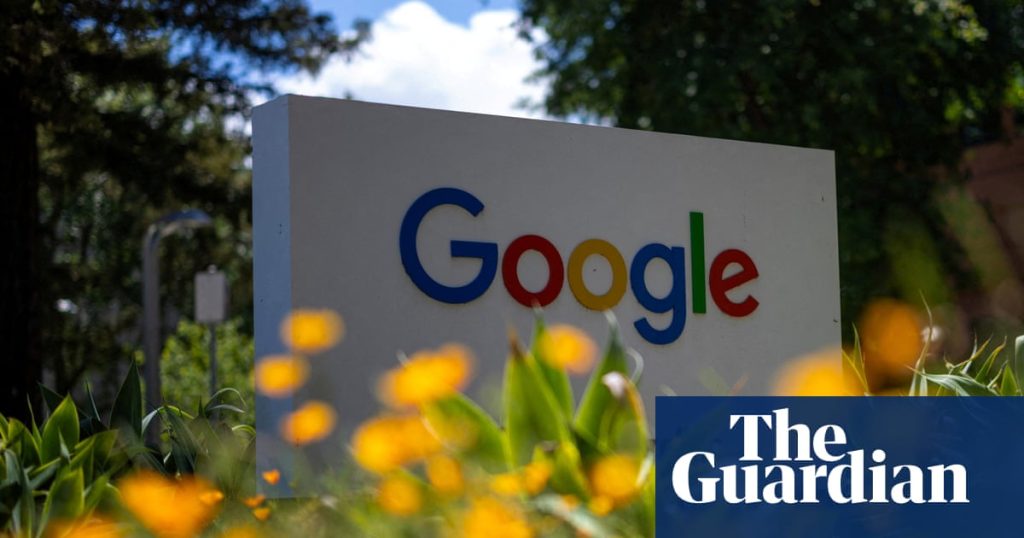Google exceeded Wall Street expectations for the quarter ending in June after closing out a few months of AI-related momentum.
On Wednesday, the company reported $2.31 in earnings per share (EPS) on $96.4bn in revenue, surpassing analysts’ projections of $2.18 EPS on $94bn in sales.
Google’s chief executive, Sundar Pichai, pointed to “robust growth” in key spaces across the company including AI, search, YouTube and Google Cloud.
“We are leading at the frontier of AI and shipping at an incredible pace,” Pichai said in a statement. “AI is positively impacting every part of the business, driving strong momentum. Search delivered double-digit revenue growth, and our new features, like AI Overviews and AI Mode, are performing well. We continue to see strong performance in YouTube as well as subscriptions offerings. And Cloud had strong growth in revenues, backlog and profitability.”
Google’s AI chatbot, Gemini, now has more than 450 million monthly active users and AI Overviews, the AI-generated summaries that pop up automatically at the top of Google search results, has over 2 billion monthly active users across 200 countries and 40 languages, Pichai said on the investor call.
To keep pace with the expansion and demand for its Cloud products and services, Google said it plans to increase its investment in capital expenditures from $75bn to $85bn. Pichai said there was a “tight supply environment” for datacenter and cloud computing infrastructure and that “there’s obviously a time delay” with this additional investment, which will play out in the next few years.
“We are seeing significant demand for our comprehensive AI product portfolio,” Pichai said on the call. “Our AI infrastructure investments are crucial to meeting the growth in demand from cloud customers.”
Market reaction to the increased spending appeared mixed, said Jesse Cohen, senior analyst at Investing.com.
“While the increased spending underscores Alphabet’s commitment to maintaining a competitive edge in emerging technologies, it also raises concerns about potential impacts on near-term profitability,” Cohen said in a statement. “AI investments are fueling the company’s strong CapEx commitments, though the market is questioning the pace of monetization.”
Some analysts say this is par for the course for companies looking to effectively compete in the AI and cloud computing space.
“It seems this is a necessary investment as the only factor limiting Google’s growth is the constraints on computing that AI and cloud solutions need to run on,” said Brian Mulberry, senior portfolio manager at Zacks Investment Management.
Pichai spoke at length about many of the company’s recent AI developments, though the company still trails behind major players like OpenAI. Just last week, OpenAI announced it would add Google Cloud to its suite of cloud storage providers for ChatGPT.
A weekly dive in to how technology is shaping our lives
Privacy Notice: Newsletters may contain info about charities, online ads, and content funded by outside parties. For more information see our Privacy Policy. We use Google reCaptcha to protect our website and the Google Privacy Policy and Terms of Service apply.
after newsletter promotion
“The cloud business continues to benefit from robust enterprise demand, and the recent decision by OpenAI to run ChatGPT on Google Cloud – after relying primarily on Microsoft – is both symbolic and strategic,” Scott Acheychek, COO of Rex Financial, said in a statement. “It speaks to scale. It speaks to speed. And it underscores how Alphabet’s in-house AI stack is quietly turning into a competitive asset, winning business from names like Apple and Anthropic.”
While analysts still expect the company to report positive results for the second quarter of the year, some are concerned about its recent series of antitrust losses. A judge in April found that the firm acted illegally to build a monopoly of some of its advertising technology. That follows an August ruling that found Google engaged in anticompetitive behavior to protect its search monopoly.
The firm said it saw a 12% increase in revenue across Google Services, which includes its core search engine, assuaging analyst concerns about recent reports and remarks that indicated Google searches have declined for the first time in 22 years. During Google’s recent antitrust trial, for instance, the Apple senior vice-president of services, Eddy Cue, said Google searches in Safari had fallen for the first time in 22 years. He attributed that to the rise in the use of AI chatbots such as ChatGPT, Perplexity, Gemini and Microsoft Copilot for searches.
“Search remains the dominant cash engine – and a tension point,” Acheychek said. “While OpenAI’s ChatGPT is arguably a threat to Google’s search business, it’s also a customer. That duality sums up the moment. This isn’t necessarily a winner-take-all race; it’s a scramble to serve the exploding demand for generative tools, wherever they may live.”

